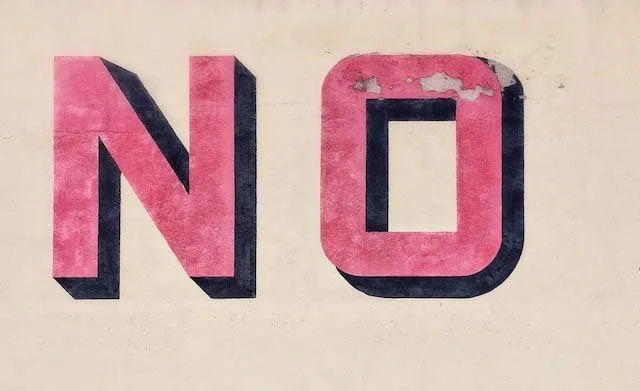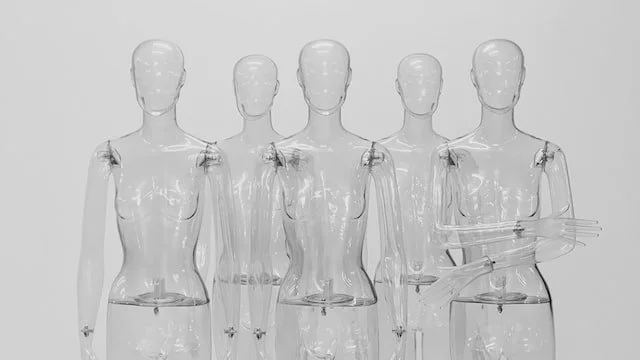Knowing the Future Doesn’t Cure Anxiety: Jen Wilkin’s post is loaded with wisdom, “We reason that if we knew what tomorrow would bring, we would use that information wisely to make good choices. But the story of Peter’s denial warns us otherwise. Jesus tells him explicitly how anxiety will cause him to sin in his immediate future. He does not alter his course. Peter’s knowledge of the future serves not to correct him but to condemn him. Foreknowledge yielded neither repentance nor humility in Peter.”
Three Questions to Make Sense of Anxiety: In a similar vein, Joe Hussung notes that, “Our intuition is to say that anxiety is all about what we fear, but in reality, it is deeper than that. Anxiety is actually about what we love.”
What Jesus Saw When He Looked at Peter After the Rooster Crowed: Erik Raymond with another related post, encourages us, “How do you think Jesus looked at Peter? Was Jesus surprised? Frustrated? Ashamed? If you are a Christian, then your understanding of how Jesus looked at Peter is foundational to your perception of how he looks at you when you sin.”
Gen Z Couples are Shacking Up at Record Rates: Unsurprising report from Bloomberg, that 11% of those aged 18-24 are living with romantic partner. The 3.2 million cohabitating are 650,000 more than the same age group pre-pandemic.
America the Single: Again, unfortunately unsurprising. Erica Pandey explains, “Over the last 50 years, the marriage rate in the U.S. has dropped by nearly 60%.”
The Plumb Line
Who is the person you compare yourself to most often? Perhaps it is a family member, friend, or co-worker; perhaps it is even a celebrity. We humans are comparison machines. We’re constantly evaluating the stimuli around us. Social media has exacerbated the issue, giving us instant access into the highlight reels of thousands of friends and celebrities. Psychology Today reports that, “According to some studies, as much as 10 percent of our thoughts involve comparisons of some kind.” Friend, this kind of toxic comparison is harmful.
You Don't Trust Me. What Now?
The world doesn’t trust me. It doesn’t trust you either. But don’t lose heart. Christ has overcome the world. And he calls us into the world with the assurance of his presence and his power. May we live in a manner that reflects his light to this dark world. Daniel promises that, “And those who are wise shall shine like the brightness of the sky above; and those who turn many to righteousness, like the stars forever and ever.” May we shine for his glory, entrusting our reputation to God and God alone.
This Week's Recommendations
Your Attention Span Isn’t Dead – Yet: Rebecca Ruiz begins, “I have a modest dare for you, dear reader: Try to stay on this page for longer than 47 seconds. That may seem like a ridiculously short and easy period to focus on one task, but studies show that the average time spent on a single screen has shrunk to less than a minute.”
How Should We Handle Outrage? Amy Hall reminds us, “It’s not wrong to be outraged by evil. Our desire for justice flows directly from our love for God and our knowledge of his magnificent, righteous, beautiful character. Because he is the standard of all justice, we likewise love justice. Because he is the Creator, all truth is valuable. And because we love the truth, lies are maddening. Because he has explained what it means to love, we know how to truly help people. And because we love people, injustices infuriate. God himself is angry at evil because evil destroys human beings, who are created in his image, so our outrage is understandable.”
Facts Don’t Care About Your Healings: This is a dense, but important post by Samuel James. He draws toward this conclusion, “Ben Shapiro’s famous tweet “Facts don’t care about your feelings” has come to symbolize the reactionary conservative movement. Feelings are thought now to be left-coded, and facts right-coded. This isn’t all that new. But the recoding of justice/forgiveness suggests that it is now conservatives who find themselves the party of emotional health, over and against the progressives as the party of capital-L Law.”
Don’t Be a Fig Leaf: Kim Barnes, “Yet we are often uncomfortable when people we love confess sin. Almost like a reflex, we want to reassure and comfort. How many times has someone apologized to you and your automatic response was: “It’s okay”? We minimize the sins of others because we minimize our own sin. While we should love and forgive the friend who comes to us in confession, it’s not okay. Sin is not okay.”
The Peace of Wild Things: Stop what you’re doing and give just over a minute of your attention to this beautiful poem that echoes Jesus’s words about the sparrow.
How To Battle Lust
Diversity and God's Glory
There is a temptation for Christians to reject what the world values. Understandably, we would be suspicious of those things which secularism honors. But sometimes there is a baby in the bath water. There are few things more sacred in the modern West than diversity. But this is a baby worth preserving. Diversity was God’s before it was the world’s.
This Week's Recommendations
FOBO: Gen Z’s FOMO: Jerry Riendeau explains, “What is FOBO? It’s the “fear of better options.” The average young person’s inner dialogue seems to have shifted from What if I don’t go and they have fun without me? to What if I commit now and regret it later?”
When Were Christians First Regarded as Intolerant “Haters”: Michael Kruger explains, “this sort of accusation against Christians is, at its core, a moral objection. Rather than the standard historical or logical objections often leveled against the faith, this one is fundamentally about ethics. It is claiming that Christian behavior violates some moral standard that all should follow.”
Lesson for the Church from the Barnes & Noble Turnaround: Trevin Wax begins, “Few analysts expected brick-and-mortar bookstores to survive, much less thrive, in the 2020s. If you were placing bets a few years ago, you’d think digital would be the way to go: Facebook, Netflix, Crypto, or Tesla. But… Not only is Barnes & Noble profitable and growing, but they’re also opening new stores, including in places where Amazon tried (and failed) physical bookstores.”
Seeking Validation: Brianna Lambert with an excellent piece of writing, “Blocks teetered atop the carefully constructed tower. My five-year-old placed the final piece and stepped back to admire his masterpiece. “Mommy, can I show Daddy?” he begged. It’s a common question in my house. Whether my children have colored a new picture, constructed an intricate building, or built a sweeping railroad track, they inevitably seek to show it off to Daddy as soon as possible. Their sweet requests never seem fueled by pride so much as excitement and the nagging question: Have I done well? Their love and admiration for their father pushes them to seek his approval for all their hard work spent coloring, building, or cutting. Ultimately, they want to know if their time was worth something.”
Man Pops Car Hood, Thus Exhausting His Knowledge of How Cars Work: Babylon Bee obviously wrote this about me: a low blow!
This Week's Recommendations
Don’t Let the Culture War Steal Your Joy: Trevin Wax reflects, “The worrisome quality I find in much of today’s cultural commentary is the absence of joy. It’s as if our souls have shriveled until all that remains is a sense of hopelessness, a quiet resignation that assumes the church cannot thrive in this strange new world.”
Holiness is Transgressive: Brett McCracken’s post sizzles. I love this, “’Transgression’ in contemporary pop culture has become ubiquitous to the point of banality…it’s all so pervasive by now that it’s tiresome, as “transgressive” as the khaki section of Old Navy.”
Church Attendance Drops Among Young, Liberals, and Singles: Christianity Today reports, “Before the pandemic, 75 percent of Americans reported attending religious services at least monthly. By spring 2022, that figure dropped to 68 percent attending at least monthly.”
I Want Him Back (But Not the Old Me Back): Tim Challies on sanctification and the death of his son, “I want Nick back. But I don’t want my old self back. I so badly wish that my son could be part of my life again. But I would so badly hate to lose all the precious ways in which God has been real to me and true to me and present with me in my sorrows.”
Travel Photographer of the Year: If you enjoy photography, make sure you scroll through all of these. The elephant and the lion looking through the buffalo pics are particularly stunning.
What is Good (and Bad) about Transparency
The rise of reality TV and then social media has radically increased transparency. Team Transparency has rallied around #nofilter selfies and sharing even the frustrating and discouraging parts of life. Team Self-Respect has rallied around calls for decency and the need for some last bastion of privacy. Team Transparency has attacked Team Self-Respect for their filtered and prettied-up lives, for mushy posts about significant others, and for bragging about their kids. Team Self-Respect has attacked Team Transparency for their self-importance and oversharing about bad bosses and relationships, and shaming their spouses and children.
So, which team is right? Should we be transparent?
This Week's Recommendations
Nietzsche was Right: In a similar vein as my post on Tuesday, Tim Keller reviews Tom Holland’s (not the actor) book on how Christianity revolution changed the world. Keller concludes, “In no way does [Holland] let the church off the hook for its innumerable failures. Nor will he let secular people live with the illusion that their values are just self-evident, the result of reason and scientific investigation.”
What Has Been Most Helpful in Your Marriage? Ed Welch answers this question with wisdom.
Beware of Pride: A Cautionary Tale: Lee Hutchings tells the story of how pride led William Henry Harrison to have the shortest tenure of any US President. He explains, “Such a tragic and ironic ending to an otherwise tenacious life is compounded by the fact that Harrison died, in all likelihood, of his own vanity and pride.”
Love is a Skill: Seth Lewis comments, “It’s interesting that Jesus never mentioned how the Good Samaritan felt about the man on the road. He only tells us what he did for him. Evidently, Jesus does not consider love to be primarily about how we feel, but more importantly about what we do.”
Can Cancer be God’s Servant? Randy Alcorn considers hard truths in the face of his wife’s recent death. “When our ministry posted Nanci’s words, “My cancer is God’s servant,” someone responded, “WHAT? God does NOT give people cancer. Jesus bore our sicknesses and carried our pains on the cross.”














